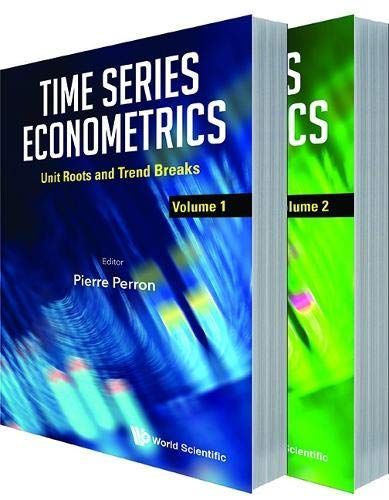
Time Series Econometrics
Volume 1 covers statistical methods related to unit roots, trend breaks and their interplay. Testing for unit roots has been a topic of wide interest and the author was at the forefront of this research. The book covers important topics such as the Phillips-Perron unit root test and theoretical analyses about their properties, how this and other tests could be improved, and ingredients needed to achieve betters tests and the proposal of a new class of tests. Also included are theoretical studies related to time series models with unit roots and the effect of span versus sampling interval on the power of the tests. Moreover, this book deals with the issue of trend breaks and their effect on unit root tests. This research agenda fostered by the author showed that trend breaks and unit roots can easily be confused. Hence, the need for new testing procedures, which are covered.Volume 2 is about statistical methods related to structural change in time series models. The approach adopted is off-line whereby one wants to test for structural change using a historical dataset and perform hypothesis testing. A distinctive feature is the allowance for multiple structural changes. The methods discussed have, and continue to be, applied in a variety of fields including economics, finance, life science, physics and climate change. The articles included address issues of estimation, testing and/or inference in a variety of models: short-memory regressors and errors, trends with integrated and/or stationary errors, autoregressions, cointegrated models, multivariate systems of equations, endogenous regressors, long-memory series, among others. Other issues covered include the problems of non-monotonic power and the pitfalls of adopting a local asymptotic framework. Empirical analyses are provided for the US real interest rate, the US GDP, the volatility of asset returns and climate change.